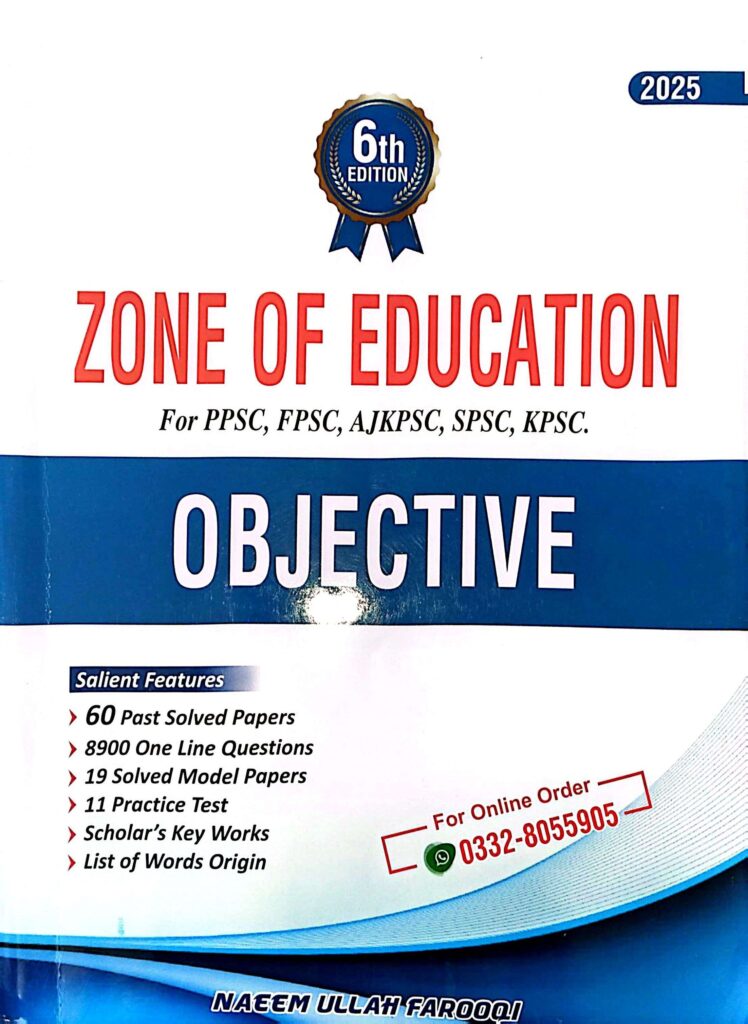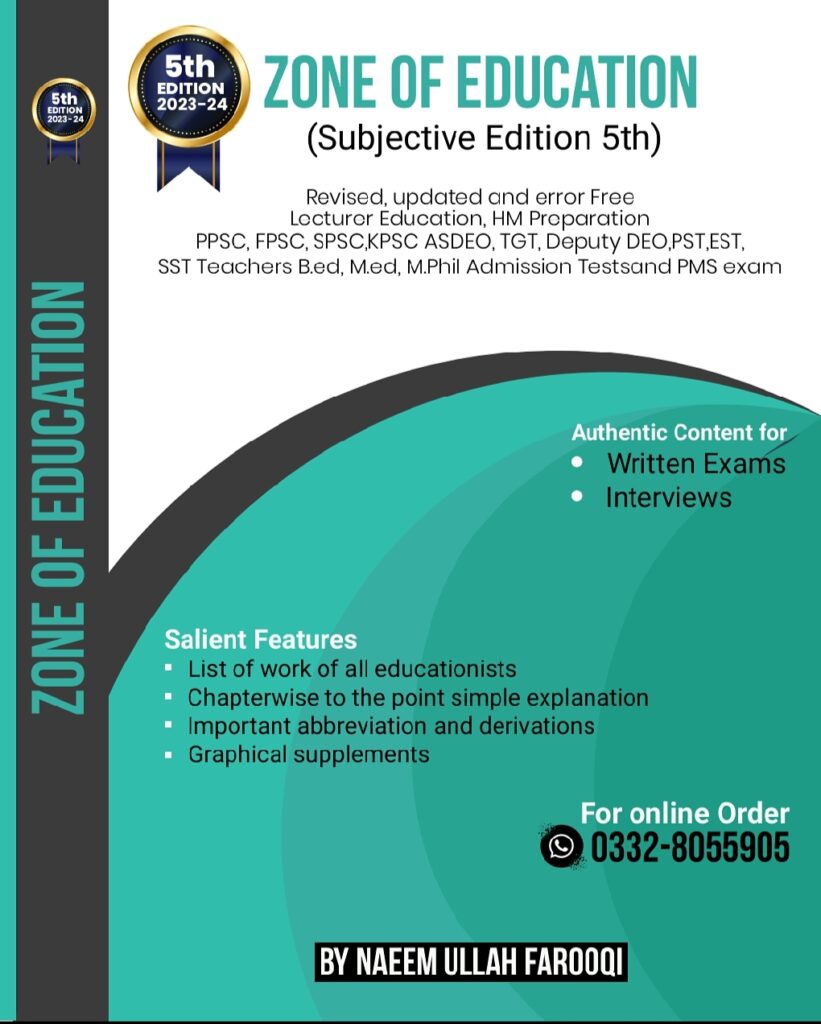Psychology
.1. A person who earned his first few rupees to ward off hunger and discomfort, continues to work day and night at amassing a large fortune long after he has acquired enough money to meet his physical needs. This is an example of:
o (a) Acquired motives
o (b) Extinction of motives
o (c) Instructive behaviour
o (d) Gregarious instinct
o Correct Answer: (a) Acquired motives
2. A stimulus reinforcing behavior which terminates it is called:
o (a) Reflex
o (b) Unconditioned stimulus
o (c) Negative reinforcer
o (d) Positive stimulus
o
3. Gradual disappearance of a CR in the absence of reinforcement when the CS is presented leads to:
o (a) Experiment neurosis
o (b) Experimental extinction
o (c) Spontaneous recovery
o (d) Any other
o Correct Answer: (b) Experimental extinction
4. A response may be more resistant to extinction if reinforcement in conditioning trial has been:
o (a) Periodic
o (b) Continuous
o (c) Never given
o (d) None of the above
o Correct Answer: (a) Periodic
5. The ability of the animal to respond to the reinforcing stimulus and not another is called:
o (a) Stimulus generalization
o (b) Stimulus discrimination
o (c) Response discrimination
o (d) None of these
o Correct Answer: (b) Stimulus discrimination
6. Some of the earliest experiments on reaction time were carried out in the laboratory by:
o (a) Ebbinghaus
o (b) Fechner
o (c) Binet
o (d) Helmholtz
o Correct Answer: (d) Helmholtz
7. Disorders affecting language are called:
o (a) Aphasias
o (b) Agnosias
o (c) Astercognosis
o (d) All the three
o Correct Answer: (a) Aphasias
8. Salivation to the bell in classical conditioning is called:
o (a) UCS
o (b) CS
o (c) CR
o (d) UCR
o Correct Answer: (c) CR
9. The first person to conduct experiments in classical conditioning was:
o (a) Bechterev
o (b) Spinovich
o (c) Pavlov
o (d) Binet
o Correct Answer: (c) Pavlov
10. Instrumental conditioning is also called:
o (a) Avoidance conditioning
o (b) Escape conditioning
o (c) Operant conditioning
o (d) All the three
o Correct Answer: (c) Operant conditioning
11. When an animal responds to a stimulus other than a primary stimulus just as if it were a primary stimulus, the phenomenon is:
o (a) Higher order conditioning
o (b) Second order conditioning
o (c) No conditioning
o (d) None of these
o Correct Answer: (b) Second order conditioning
12. In instrumental conditioning, the animal behavior is instrumental in bringing out the:
o (a) CS
o (b) UCS
o (c) CR
o (d) None of these
o Correct Answer: (c) CR
13. Conditioning can be established to stimuli which are:
o (a) Only pleasant
o (b) Only unpleasant
o (c) Both pleasant and unpleasant
o (d) Neither
o Correct Answer: (c) Both pleasant and unpleasant
14. A standard situation for studying instrumental conditioning is:
o (a) The problem box
o (b) Skinner box
o (c) Activity case
o (d) All these
o Correct Answer: (b) Skinner box
15. The contrast experiments on memory were conducted by:
o (a) Osgood
o (b) Ebbinghaus
o (c) Skinner
o (d) Binet
o Correct Answer: (b) Ebbinghaus
16. A learning curve essentially straight is a curve of:
o (a) Equal returns
o (b) Increasing returns
o (c) Decreasing returns
o (d) None of these
o
17. A curve indicating the greatest amount of learning in the early trials while subsequently diminishing on latter trials is a curve of:
o (a) Equal returns
o (b) Decreasing returns
o (c) Increasing returns
o (d) None of these
o Correct Answer: (b) Decreasing returns
18. Positive transfer of training is most possible with:
o (a) Similar tasks
o (b) Dissimilar tasks
o (c) A verbal and a motor task
o (d) None of these
o Correct Answer: (a) Similar tasks
19. The learning where an animal has distinguished between two or more stimuli is:
o (a) Imprinting
o (b) Discrimination learning
o (c) Attitude learning
o (d) None of these
o Correct Answer: (b) Discrimination learning
20. Motivation should be followed by:
o (a) Reward
o (b) Incentive
o (c) Reproof
o (d) Knowledge of results
o
21. A Skinner box is used for:
o (a) Motor learning
o (b) Verbal learning
o (c) Problem solving
o (d) Incidental learning
o Correct Answer: (c) Problem solving
22. Learning involving motor organs is called:
o (a) Sensory learning
o (b) Motor learning
o (c) Verbal learning
o (d) Sensory motor learning
o
23. The first verbal material for human learning was:
o (a) Meaningful word
o (b) Story
o (c) Nonsense
o (d) Syllable
o Correct Answer: (c) Nonsense
24. Learning is a modification in behavior which is relatively:
o (a) Permanent
o (b) Temporary
o (c) Adverse
o (d) Quick
o Correct Answer: (a) Permanent
25. Knowledge of result is:
o (a) Promoting learning
o (b) Discouraging learning
o (c) Stopping learning
o (d) Retarding learning
o Correct Answer: (a) Promoting learning
26. Punishment is effective only when it weakens:
o (a) Undesirable response
o (b) Desirable response
o (c) Behavior
o (d) None of the above
o Correct Answer: (a) Undesirable response
27. Punishment leads to:
o (a) Promoting learning
o (b) Standard learning
o (c) Increasing learning
o (d) None-effecting
o
28. A child learns more quickly when the right response is reinforced by:
o (a) Reward
o (b) Punishment
o (c) Praise
o (d) Reproof
o Correct Answer: (a) Reward
29. Reinforcement is attributed to:
o (a) Kohler
o (b) Hull
o (c) Skinner
o (d) Tolman
o
30. Reward and punishment is:
o (a) Reinforcing
o (b) Motivating
o (c) Distracting factor
o (d) Enhancing factor
o Correct Answer: (a) Reinforcing
31. Pavlov was the pioneer of an important theory of learning called:
o (a) Conditioning
o (b) Conditioned behavior
o (c) Classical conditioning
o (d) Operant conditioning
o Correct Answer: (c) Classical conditioning
32. Kohler and Koffka believed learning to be a function of:
o (a) Trial and error
o (b) Imitation
o (c) Insight
o (d) Exercise
o Correct Answer: (c) Insight
33. Wertheimer was the founder of:
o (a) Associationism
o (b) Gestalt
o (c) Leipzig lab
o (d) Behaviorism
o Correct Answer: (b) Gestalt
34. The Insight theory of learning was the gift of:
o (a) Behaviorists
o (b) Gestaltists
o (c) Freudians
o (d) Structuralists
o Correct Answer: (b) Gestaltists
JOIN ZONE OF EDUCATIONPK!
Discover the most comprehensive and reliable pedagogy resources in Pakistan, curated for competitive exam success. Our content covers all competitive exam MCQs, including PPSC, FPSC, AJKPSC, SPSC, and more. Designed to empower learners with top-notch material and insights, trust us for your preparation journey!


